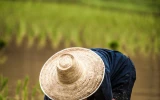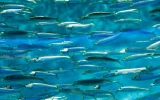The Requirements for Fish Farming (Detailed Overview)
As the industry expands, it is important for those involved in fish farming to understand the various requirements and regulations that are in place to ensure the sustainability of the industry. This article provides a detailed overview of the requirements for fish farming, covering topics such as land requirements, water supplies, and other necessary resources.
To get started with fish farming, you need to make sure you have the right equipment and supplies, as well as the necessary resources such as land, water, and feed. You need to have a well-researched and well-thought-out plan, and understand the regulations in your area and the needs of the fish you are raising.
We'll discuss the regulations and laws for fish farming in the USA and UK and provide an overview of the different types of fish farming that exist. With this information, you will be able to make an informed decision and start your business with confidence.
Summary
- Fish farming is a great way to raise and harvest fish to provide a food source.
- Fish farming involves creating a controlled environment for the fish to grow, such as ponds or cages, and then providing food and care for the fish.
- With the right equipment, resources, and understanding, fish farming can be a rewarding and successful venture.
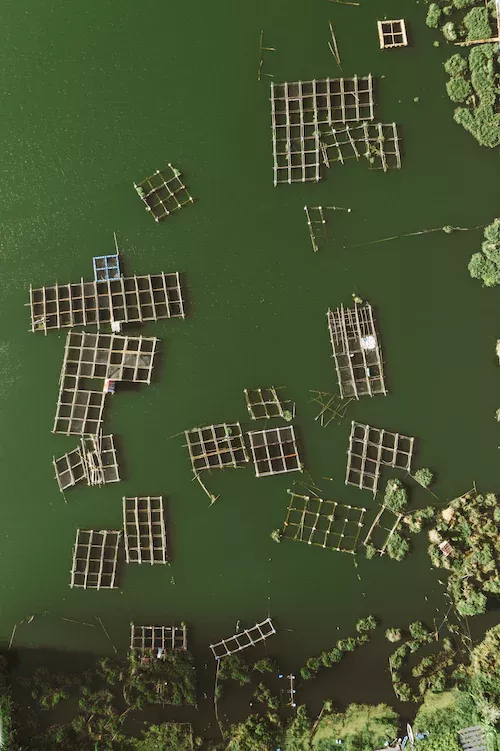
On this page:
The Requirements for Fish Farming in the USA
Here are the six main requirements for fish farming that you need to adhere to under the rules and regulations in the USA.
1. All fish farms in the USA must be licensed and inspected by the state
All fish farms in the USA must be licensed by the Department of Natural Resources or other applicable agencies in the state in which they are located. The license must be renewed every year and the farm must meet all applicable regulations. All fish farms must be inspected at least once per year by a qualified representative of the state department of natural resources or other applicable agencies.
2. All fish farms must have a plan in place for controlling and preventing the spread of disease among their fish
All fish farms must have a plan in place to monitor, test, and treat the water quality to ensure that the level of contaminants, including bacteria and other microorganisms, remains below the standards set by the state.
3. Fish farms must maintain a safe and clean environment for the fish
Well-maintained and sufficient feeding systems, including a variety of food sources to promote healthy eating habits, including adequate shelter, feeding, and aeration systems. Appropriate waste management plans and systems are needed to ensure that any waste produced is managed safely and effectively.
4. Fish farms must adhere to strict regulations on the use of treatments used on the fish
- Farms in the USA must adhere to the US Fish and Wildlife Service’s Fish Health Management Guidelines, which cover the use of antibiotics, vaccines, and other treatments used on fish.
- Farms must also abide by the National Oceanic and Atmospheric Administration’s (NOAA) Seafood Inspection Program, which includes restrictions on the use of chemicals and processing aids.
- The Food and Drug Administration (FDA) enforces regulations on the use of drugs and chemicals in fish farming.
- The US Department of Agriculture (USDA) also sets rules on feed, water quality, and other factors that impact the quality of fish.
6. Fish farms must have an emergency plan in place
Farms must have an emergency plan that outlines procedures for responding to natural disasters such as floods, hurricanes, tornadoes, and earthquakes. The plan must include strategies for protecting the fish from disease and contamination caused by the disaster, including methods of treating and disposing of dead fish and isolating and treating sick fish.
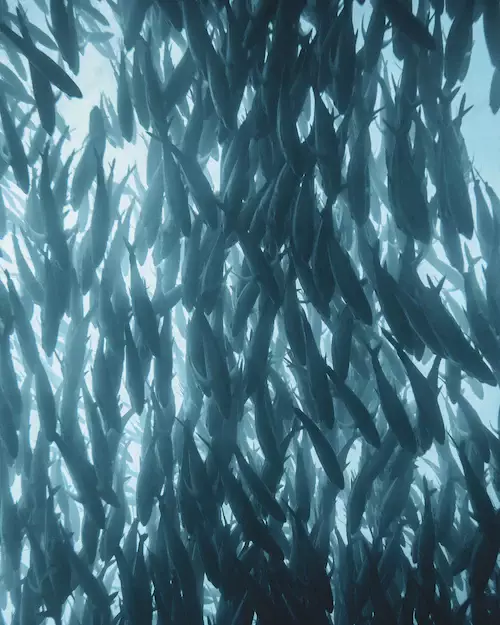
The Requirements for Fish Farming in the UK
Here are the six main requirements for fish farming that you need to adhere to under the rules and regulations in the UK.
1. All potential fish farmers in the UK must be licensed through the Environment Agency (EA)
- All potential fish farmers must register their business with the EA before they can be issued a license.
- Once registered, applicants must submit a Fish Farming License Application Form, along with any supporting documents, to the EA for assessment.
- The EA will then conduct an onsite visit to the applicant’s proposed fish farm site to verify the information provided and ensure that the applicant meets all relevant regulations.
- Upon approval, the EA will issue the applicant a Fish Farming License, which must be renewed annually.
2. A fish farm must be located in an appropriate water body
The fish farm must be located in an isolated, non-tidal water body surrounded by a natural buffer zone of trees and shrubs, and with a minimum water depth of 3 meters. All necessary feed, equipment, and personnel must enter and leave the farm by boat, and all other access points must be secured to prevent unauthorized entry or movement of fish or other aquatic life.
3. The fish farm must meet all legal requirements of the Water Framework Directive
The farm must ensure that the fish are kept in suitable conditions, with adequate food, oxygen, and temperature. The farm must also maintain a good balance of nutrients in the water, including oxygen, nitrogen, and phosphorous, to support healthy fish populations.
4. The fish farm must have a license for the species of fish being farmed and for any chemicals used in treating the water
The license should cover the maximum number and size of fish that can be farmed, the number of tanks or ponds to be used, the method of feeding and treating the fish, the water temperature, the water quality, and any other specific environmental conditions. The license should also cover the use of any chemicals used in treating the water, such as chlorine, copper sulfate, and formalin.
5. The fish farm must have a plan for controlling the spread of parasites and diseases.
- First, they must regularly inspect the farm and the fish to identify any potential issues.
- Secondly, they ensure that all incoming stock is from a reputable source and is healthy.
- Thirdly, they practice preventive measures such as adding antibiotics to the water, maintaining high water quality, and regularly cleaning the tanks.
- Lastly, if any signs of disease or parasites are detected, they will quarantine the affected fish and treat them with appropriate medications.
6. The fish farm must be operated following a set of operational guidelines
All fish at the farm must be fed according to the manufacturer’s instructions, and the farm must keep accurate records of all feed purchases and usage. The water quality at the farm must be maintained at optimal levels and monitored regularly. The farm must also record all water tests, treatments, and changes in water parameters.
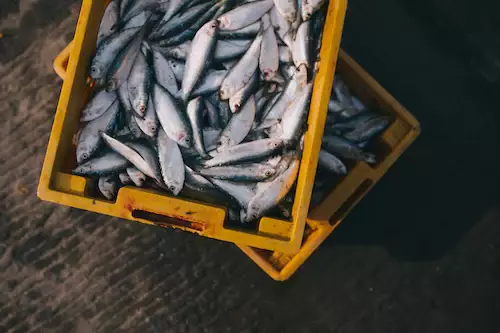
Equipment and Supplies Needed for Fish Farming
Here are the basic equipment and supplies needed to start your fish farming journey.
- An aeration system that includes an aerator and air pump to keep the water oxygenated for the fish
- A filtration system that includes a filter to keep the fish pond water clean
- Fish feeders, whether automated or manual, used to dispense food to the fish
- Fish nets to be used to scoop out fish from the pond or tank
- A lighting system that includes lights to help the fish grow and stay healthy
- A heating system that includes a heater to keep the water temperature at an ideal level for the fish
- A high-quality fish food designed to meet the nutritional needs of the fish
- The fish medicine used to treat any illnesses or diseases the fish may become susceptible to
- The test kits that are used to test the water quality of the pond or tank
- The lime used for raising the pH of the water
